The Teaching of Reading
At Barons Court Primary School and Nursery it is our aim to develop enthusiastic and confident readers who read for interest, information and enjoyment. We use a range of different strategies to support reading within our school.
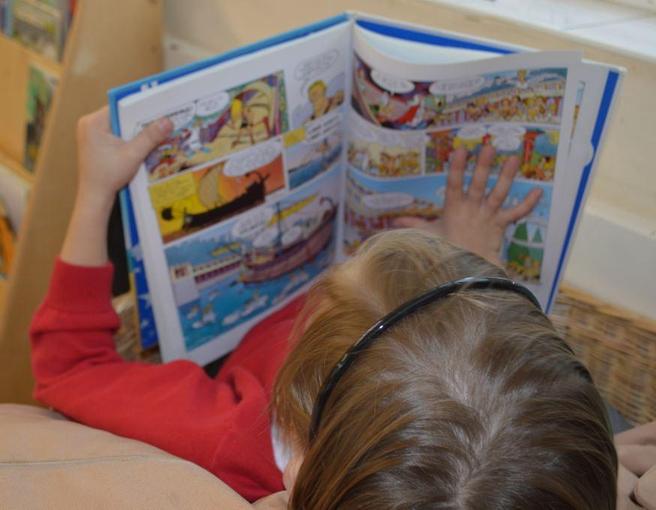
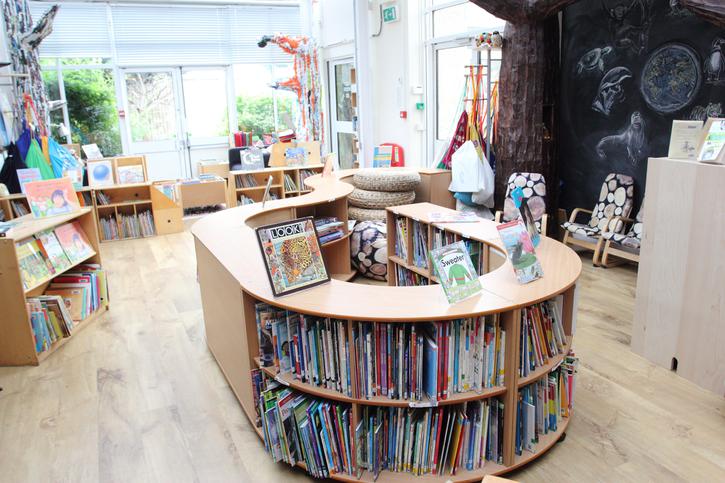
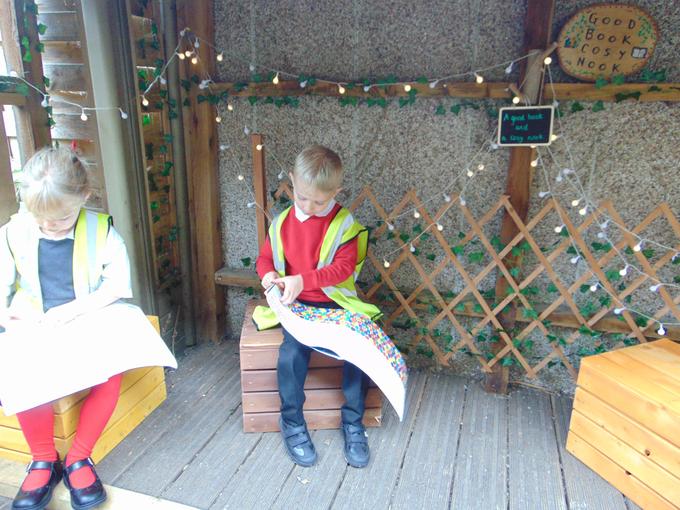
We have specifically designed our reading curriculum to ensure that children at Barons Court are successful communicators. Through stimulating experiences and exposure to rich literature the children become readers through writing and writers through reading.
Through our well designed reading curriculum we aim to:
- Develop understanding and skills so that children become independent, enthusiastic and fluent readers.
- Develop a lifelong love for reading.
- Allow children to access stage-relevant texts.
- Ensure that children understand the language they have acquired may be relevant across all areas of their learning and to apply that language where possible.
- Develop word reading skills which enable the children to have secure decoding skills and the quick recognition of familiar words.
- Embed reading and wider skills across the curriculum using a scheme taught consistently across the school by a highly competent team of reading teachers.
- Support children’s comprehension skills through ensuring experiences of high-quality discussion with the teacher and peers, and establishing clear methods for answering a range of comprehension questions (summary, inference, prediction etc).
- Ensure children experience a range of genres discussing a range of stories, poems and non-fiction throughout their learning experiences.
- Promote children’s love of books by creating libraries with books that link to children’s interests but also engage children with texts and knowledge outside of their current experience.
- Support pupils to read widely through a carefully chosen Book Spine delivered by home group teachers.
- Ensure children respond imaginatively to a variety of texts including fiction, non-fiction, poetry and prose.
- Develop children’s fluency, intonation and expression so they are able to read aloud for different purposes adopting the appropriate methods.
- Develop children’s reading at home by making strong links with parents.
Reading for Enjoyment
“I declare after all there is no enjoyment like reading! How much sooner one tires of anything than of a book!” Jane Austen.
Reading for pleasure has social benefits as well and can make people feel more connected to the wider community. Reading increases a person's understanding of their own identity, improves empathy and gives them an insight into the world view of others. (The Reading Agency 2015)
We ensure that children develop a love of reading by reading a range of exciting books to children daily. Across our school this is achieved through our 'Toast Talk and Tales', a daily routine of reading and enjoying toast together. We also take part in author visits and take children to The Forum in Southend. At Barons Court, we show the children how a library works and promote reading workshops across the school year. We hold book fairs, where children can read a selection of books and purchase these to enjoy at home. Children take home reading books matched to their ability to enjoy at home and it is expected that all children read at least 3 times a week at home. The children at Barons Court often see the adults in school enjoying books, finding humour, interest and excitement in them, providing strong role models for 'reading for enjoyment!'
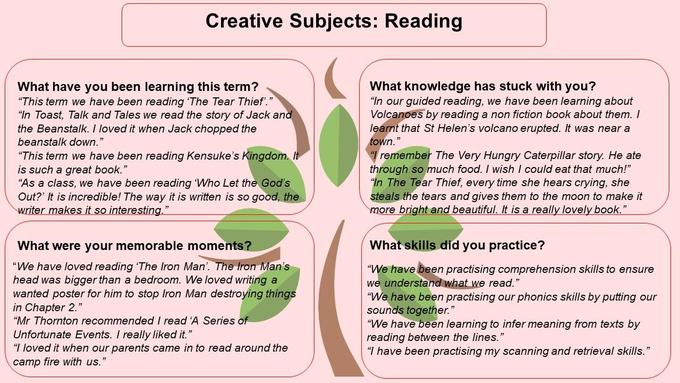
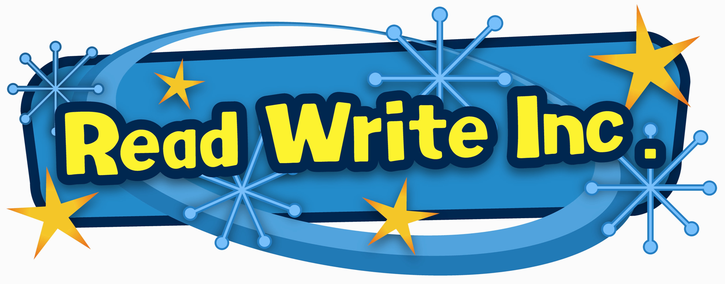
We achieve our reading aims through the following strategies:
Daily Phonics Sessions
Our pupils learn to read and write effectively and quickly using the Read Write Inc. Phonics programme. They progress onto Read Write Inc. Literacy and Language and Read Write Inc. Spelling once they can read with accuracy and speed.
The Read Write Inc programme is taught to:
- All pupils in Phase 1 and 2 and to pupils in Year 2 who are learning to read and write independently.
- Pupils in Years 2, 3 and 4 who need to develop their skills further.
Within Read Write Inc. Phonics pupils:
- Decode letter-sound correspondences quickly and effortlessly, using their phonic knowledge and skills.
- Read common exception words on sight.
- Understand what they read.
- Read aloud with fluency and expression.
- Write confidently, with a strong focus on vocabulary and grammar.
- Spell quickly and with confidence by segmenting the sounds in words.
- Acquire good handwriting skills, ensuring fluency and a joined up style.
In addition, we teach pupils to work effectively with a partner to explain and consolidate what they are learning. Teachers are provided with opportunities to assess learning and to address misconceptions, such as pupils’ articulation, or difficulties with blending or alphabetic code knowledge. We group pupils homogeneously, according to their progress in reading rather than their writing.
Within our EYFS provision we emphasise the alphabetic code. The pupils rapidly learn sounds and the letter or groups of letters they need to represent them - simple mnemonics help them to grasp this quickly. This learning is consolidated daily. Pupils have frequent practice in reading high frequency words with irregular spellings – common exception words (red words).
We make sure that pupils read books that are closely matched to their increasing knowledge of phonics and the common exception words. These books are from the RWI scheme and are carefully matched to the child’s stage of development in phonics. All children have access to a weekly E book which is sent home weekly for children to read together with their family. This is so that, early on, they experience success and gain confidence as readers, re-reading and discussing these books with the teacher supporting their increasingly fluent decoding. Alongside this, the teachers read a wide range of stories, poetry and non-fiction to pupils and children take home decodable books from a variety of reading books so that they are exposed to a wide range of vocabulary at an appropriate level for their development. Due to the high quality RWI sessions, they are soon able to read these texts independently.
Our aim is for pupils to complete the Read Write Inc programme securely so that they are able to choose books to read at their own interest and comprehension level. However, we recognise that children do not progress at the same rates and we follow Read Write Inc Fresh Start for children in Phase 3 and Phase 4 who require additional support in their phonics development. Fresh Start allows the children to access age appropriate phonics materials to support them with their phonics teaching.
The Development of Vocabulary
When teaching phonics we expose the children to the following language:
Phase 1 and Phase 2
- Letter
- Alphabet
- Sound
- Special friends (this refers to digraphs and trigraphs)
- Rhyme
- Pinch (this refers to the skill of blending sounds to read)
- Green words (decodable)
- Red words (common exception words)
Phase 2 and Phase 3
- Grapheme
- Alphabet
- Phoneme
- Digraph
- Trigraph
- Split Digraph
- Rhyme
- Alliteration
- Blend
- Segment
- Green words (decodable words)
- Red words (Common exception words)
- Comprehension
- Characters
- Title
- Author
- Illustrator
Phase 3 and Phase 4
- Grapheme
- Alphabet
- Phoneme
- Digraph
- Trigraph
- Split Digraph
- Rhyme
- Alliteration
- Blend
- Segment
- Green words (decodable words)
- Red words (Common exception words)
- Comprehension
- Characters
- Title
- Author
- Illustrator
- Inference
Whole Class Reading and Key Texts
At Barons Court, from Reception - Year 6, we have carefully chosen key texts for each year group. These texts have been chosen to ensure that children are exposed to all of the following language types and therefore develop a broad and rich vocabulary which enhances a love of reading and develops learners as writers.
- Archaic Language -The vocabulary, usage, syntax and context for cultural reference of texts over 50 or 100 years old are vastly different and typically more complex than texts written today. We believe children need to be exposed to and develop proficiency with antiquated forms of expression to develop their understanding of texts further.
- Non-Linear Time Sequences - A story is narrated in a given style with a given cadence and that cadence endures and remains consistent, but in the best books, books where every aspect of the narration is nuanced to create an exact image, time moves in fits and start - it doubles back. The only way to master such books is to have read them time and again and our children experience such books during their journey through our school.
- Narratively Complex Books are sometimes narrated by a narrator. Other books have multiple narrators or have non-human narrators such as the horse that tells the story in Black Beauty. Some books have multiple intertwined and apparently (for a time) unrelated plot lines. These are far harder to read than books with a single plot line and we believe children need to experience these text structures as readers.
- Figurative/Symbolic Text -Texts which happen on an allegorical or symbolic level.
- Resistant Texts written to deliberately resist easy meaning-making by readers. Perhaps half of the poems ever written fall into this category. You have to assemble meaning around nuances, hints, uncertainties and clues to develop a true understanding of the text.
Please see below for our book map across our school and the breadth of experiences provided to all of our children. These texts have been specifically designed to link to each topic of the Wanderlust Nature Study within our Phase 1 and 2 learning spaces and are also linked to our Enquiry Curriculum for children within Years 1 - 6. There are copies of each key text available for every child so that they are fully immersed in the whole class reading sessions and can follow along with their own copy and read sections out loud themselves. This is also modelled by the teacher so that the children are exposed to strong story telling voices and experiences. The class texts are used as a basis of a reading lesson and also form the basis of writing experiences for all children.
Barons Court Key Text Curriculum Maps
Individual Reading Opportunities
We recognise the value of a child individually reading one to one with an adult in being able to receive personalised direction and support whilst developing the confidence to read in front of an adult. We also recognise the importance of children reading aloud or internally to themselves on a regular basis to develop a love for reading and to practise their reading skills. All children have the opportunity to read individually to themselves daily and children who have been identified as requiring additional support in reading will receive additional time with an adult to read one to one. This may be with an experienced Learning Support Assistant, Teacher or Reading Volunteer. Reading volunteers have been trained by the reading leader in how to support reading development.
Group Reading Opportunities
Group reading or guided reading takes place daily in all Phases. Children work in small groups and guided reading sessions are carefully planned and delivered by the home group teachers. Guided reading sessions allow the children to read or reread text and discuss the features of it. The homegroup teacher plans a session based on previous assessment information with the focus centered on decoding skills, comprehension, inference, vocabulary, sequencing, predicting or much more. The children read a text which is one stage above the level that they are assessed as so that they are able to access it with the support, modelling and guidance from a skilled teacher.
Oracy
At Barons Court, we recognise that oracy is vital in developing strong readers. Children need to have the opportunity to explore and use language in a range of contexts so that they understand it in a range of contexts when reading. At Barons Court we have a strong, progressive Spoken Language curriculum which feeds into each areas of the curriculum. The children have many opportunities to discuss their learning and expand their spoken language skills.
Additional Provision for Reading
Some children may require additional support in their reading development and therefore may take part in the following interventions.
Phase 1, Phase 2 and Phase 3
- Welcomm Speech and Language Intervention
- Elklan Speech and Language Intervention
- Fast Track Phonics Intervention
- Additional Reading with an adult
Phase 3 and Phase 4
- Additional Reading with an adult
- Fresh Start RWI Phonics
- Reading Booster sessions (additional tutoring by an experienced teacher)
- 11 plus tutoring
Encouraging reading throughout the year
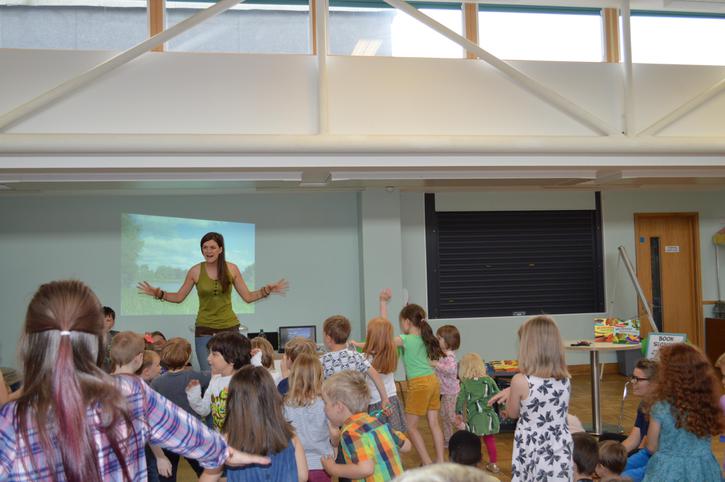
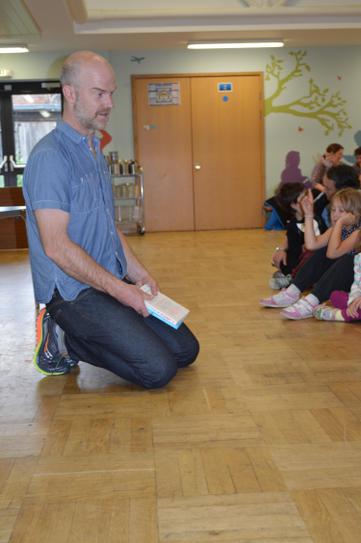
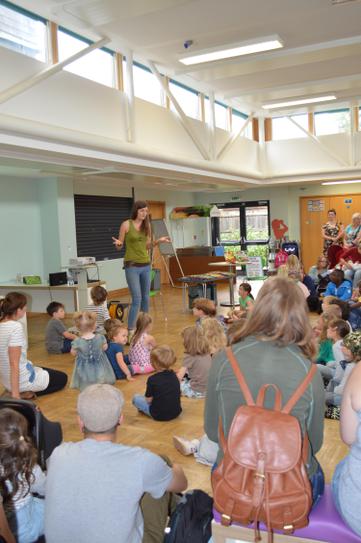
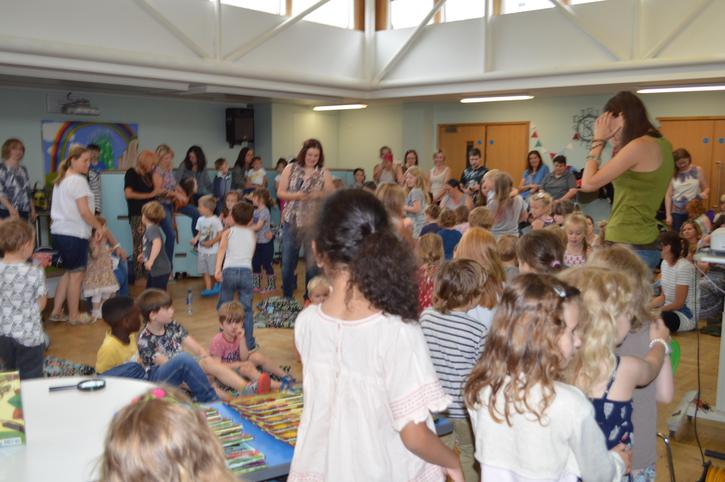
Selection of Reading Materials
Your child can choose a number of books from your local public library. No child is too young to join and they are completely free.
Public Libraries -
Southend Library at The Forum Mon-Sat- 8.30am-5.00pm
Telephone: 01702 534111
Leigh Library Mon - Sat - 10.00am-4.00pmTelephone 01702 475929Westcliff Library – Mon - Sat - 10.00am-4.00pmTelephone 01702 341961
 Skip to main content
Skip to main content
